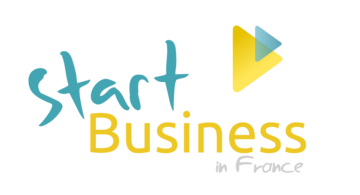I have listed below a few of the misconceptions for Americans or Canadians moving to France and starting a business. These are the most common mistakes which I come across. Save yourself a lot of time and hassle by being aware of them.
#1 - I will declare my income next year
French residents declare their personal income one year after earning it by completing a French income tax form - Impôt sur le revenu. For instance, we are about to file our 2020 French income tax form this May. But there is a difference between declaring your personal income to the tax office and declaring your business income.
As an entrepreneur, freelancer or small business owner you have to register your business before you start trading or earning some income. This is when you are issued a siret number, which is your official business number. Once this is done you will start paying some social charges to go towards your health cover, French pension and the French system. You will then declare your personal income drawn from the business the following year in your French income tax form.
So even if you plan to freelance as a consultant, coach or programmer, you need to register your business first. You will then start paying some social charges contributions throughout the year for your business.
This is the most common mistake which I come across. As you renew your visa with the prefecture, you will need to prove that you are up-to-date with French taxes, which for an entrepreneur includes social charges and personal income tax. So it is important to be fully declared from day one.
#2 - I only need a tourist visa
If you plan to come and live in France as well as start a business, start by applying for a business visa. This requires writing a business plan and financial plan to submit to the French Embassy. Coming over with a tourist visa will mean having to go back to the US to request a business visa later on.
The easiest visa to get is a visa commercant or profession liberale, as there is no investment required in the business. The French Tech visa, also called visa talents requires a €30,000 investment in your business.
#3 - I'll register the business before I move to France
This sounds like a good idea to save you time once you arrive in France. But there are two key elements that will pretty much prevent you from doing this.
- You will need a home address in France to register your business. You are indeed asked for a business address and sometimes a utility bill proving this address. Alternatively, you could set up a PO Box “adresse de domiciliation”. If you don't live in France yet, you will need a lawyer to confirm your permanent address abroad, which involves extra cost.
- You will need a French bank account if you set up an incorporated business. This is tricky to set up while being abroad. If you set up a sole trader you will also need a bank account to get paid by your customers and pay your taxes. This will require a proof of your business being set up and a French utility bill in your name.
#4 - I need to start with an incorporated business
You might want to go for an incorporated business such as EURL, SARL, SAS, SASU to protect your personal asset, but is it the best initial setup for your activity? I come across many Americans or Canadians who opened up a EURL or SAS for a simple activity with little expenses or risks. Let's just say that they are often slightly overwhelmed with the complexity of this regime.
In practice, it is a tough business to run if you don't know anything about French accountancy and it is more expensive to run than a sole trader such as a micro entreprise or entreprise individuelle. Setting up a French incorporated business will cost you about €1,800 and the same amount for yearly accountancy fees. You will require help from your accountant to make any changes to the business setup and closing the business down will cost you again the same amount.
If your activity is simple such as freelancing in PR, communication, programming, consulting or coaching and your yearly turnover is below €72,000 per year, why not start with a simple legal structure. You can always move up to an incorporated business, as and when your business grows.
The micro-entrepreneur is the easiest legal structure to start with, as it is a pay-as-you-earn system. Meaning that you will only start paying some social charges when you make some sales. You can also manage the accountancy on your own even with little French.
Start with an easy setup, give yourself six months to a year to see how your activity goes, then see whether it's appropriate to move to a different legal structure based on your projected sales and expenses.
Getting ready to move to France
Book a power hour with me to discuss your business setup and see which legal structure makes the most sense for your activity.

